Description
ABSTRACT
A Critical Examination and Effect of Public Policy on Settlement of Insurance Claims in Nigeria
Ifeoma Ann Oluwasemilore*
It is trite law that the courts would enforce contracts freely entered into by parties. However, as with many principles in law, there are exceptions, one of which is that the courts will refuse to enforce contracts that are contrary to public policy. Just like with other contracts, the principles of public policy apply to insurance contracts with regard to settlement of claims, in which case the courts may refuse to allow recovery under an insurance contract, which would enable a person benefit from his own wrong. The paper thus attempts a critical look at the meaning of public policy as decided by the Nigerian and English Courts, and instances where the courts have refused to enforce contracts on the ground that they are contrary to public policy. The paper further examines the effects of the application of the rules of public policy to first and third-party insurances and recommend that there is need for legislative intervention. The paper concludes that a clear delineation of what constitutes public policy and the resultant effects should be codified to enhance uniformity in the effect of the application to contracts of insurance.
Keywords: Public Policy, Settlement of Insurance Claims, First and Third-Party Insurance.
INTRODUCTION
In the enforcement of contracts, the courts do not have an unfettered power to intervene in its terms.1 It is required that Courts respect the sanctity of contracts freely entered into by the parties.2 However, the courts may refuse to give full effect to a contract on the ground of illegality, that is, because the contract involves the commission of a legal wrong or is in some other way contrary to public policy.
The ultimate purpose of entering into a contract of insurance is the performance of the agreed terms, that is, for the insured, to pay the premium and to perform the other terms of the contract, and for the insurer to settle the insured’s claim in accordance with the terms of the contract.3 Hence, the common belief is that upon the occurrence of the insured event, the insurer shall settle the insured’s claim.4
Certain factors, however, come to play in the settlement of insurance claims. Claims under an insurance policy may involve not only the formal requirements,5 but also the question of the possible application of the principles of public policy.6 The Courts have, in several instances, refused to enforce insurance contracts that violate public policy.7
* LL.B, BL, MLS, LL.M, Ph.D. Lecturer Department of Commercial and Industrial Law Faculty of Law University of Lagos Akoka Lagos Nigeria.
- IE Sagay, Nigerian Law of Contract (2nd edn, Spectrum 2000) 151.
- Sona Brew Plc v Peters [2005] 1 NWLR (part 908) 478, 489.
- CK Agomo, Modern Nigeria Law of Insurance (2nd edn, University of Lagos Press 2003) 169.
- ibid 161.
- For example, the requirement of notice and particulars and proof of loss; Agomo (n 3) 169-176.
- John Birds, Modern Insurance Law (7th edn, Sweet & Maxwell 2007) 254.
- WH Smith v Clinton [1908] 99 LT 840.
THE GRAVITAS REVIEW OF BUSINESS & PROPERTY LAW VOL.11 NO.2

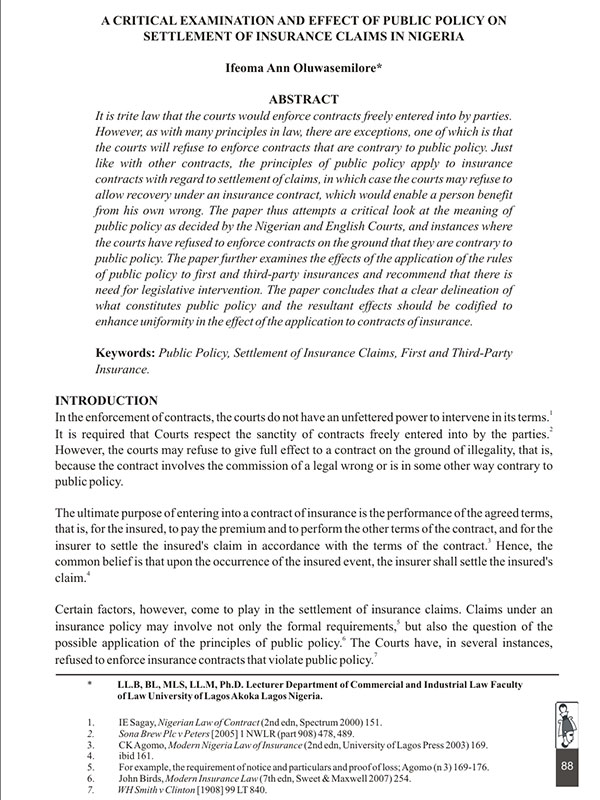
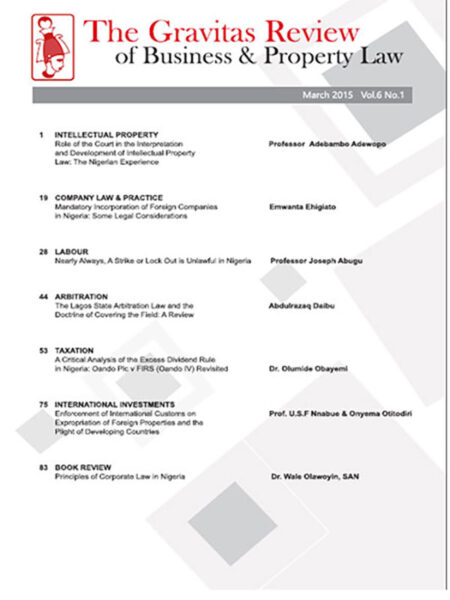
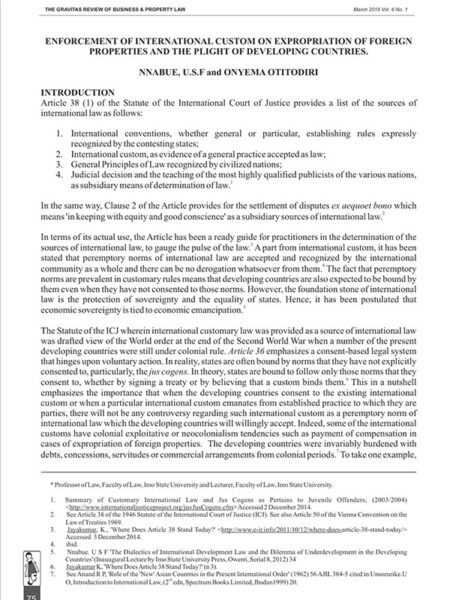
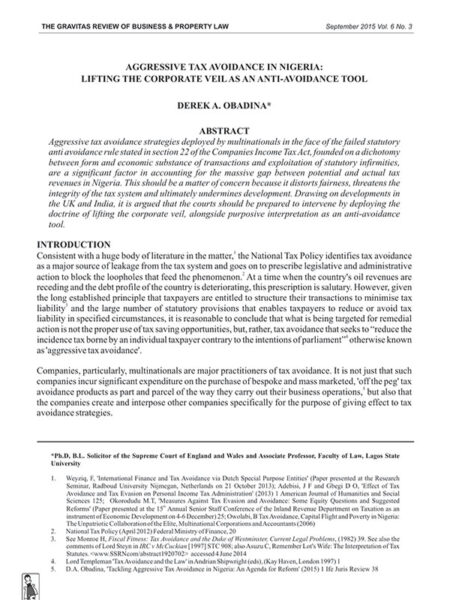
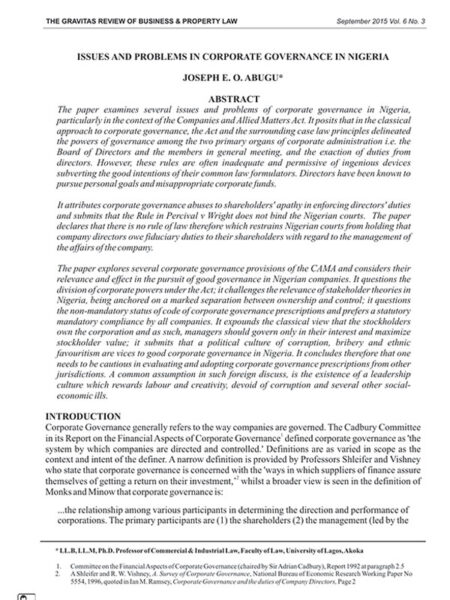


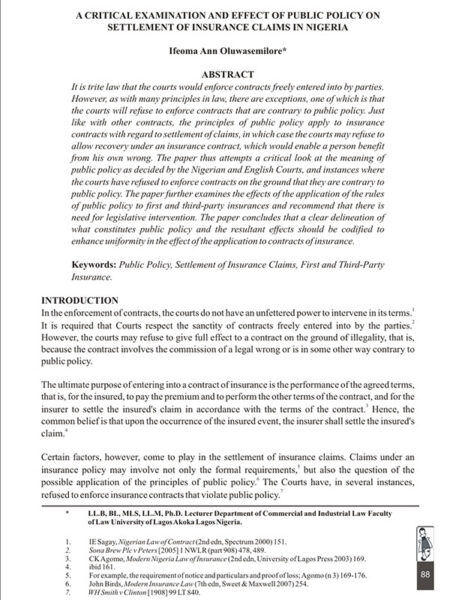
Reviews
There are no reviews yet.